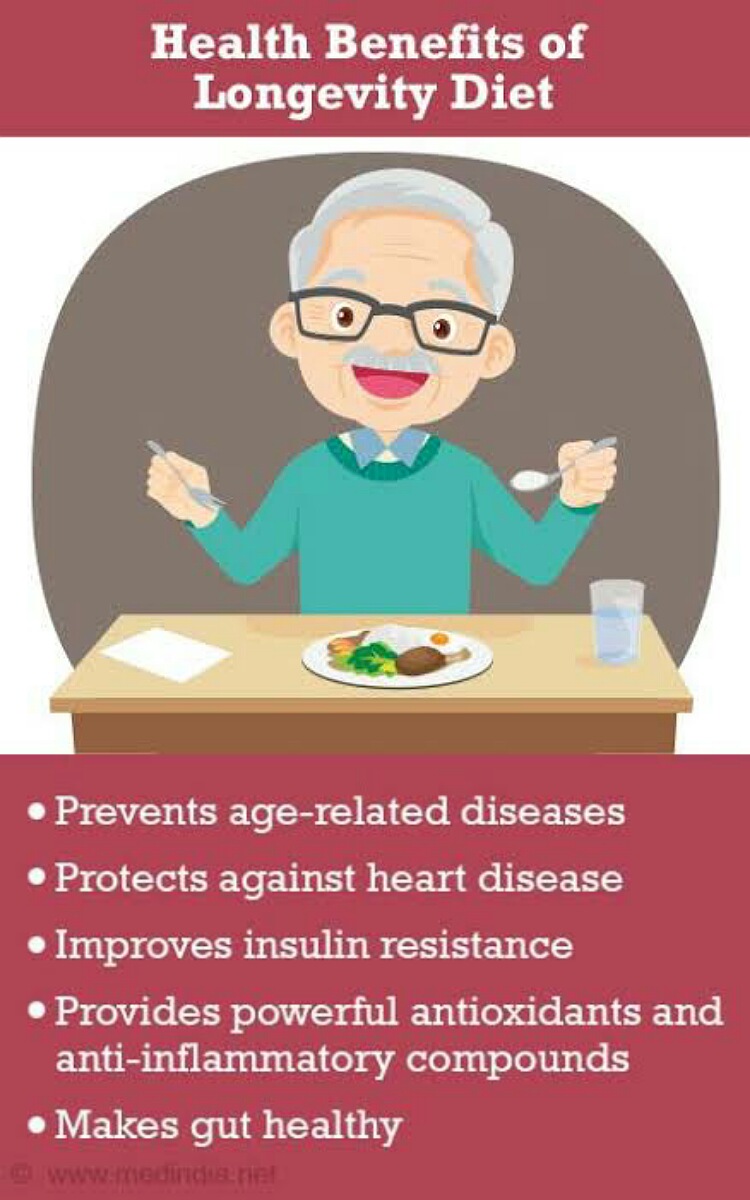Everyone wants to lead a long and healthy life. For this, American researcher Valter Longo has invented the longevity diet. What is this diet?
Longevity diet
Longevity diet is the brainchild of US researcher, Valter Longo. He is professor of gerontology and biological sciences at the University of Southern California in Los Angeles. Additionally, he also holds the post of the director of the USC Longevity Institute. After a prolonged thorough research on the internet about diets and foods that can bring about life longevity, he introduced this diet. He says:
“Using epidemiology and clinical trials, we put all the research together, and got a big picture of a safe and beneficial diet that’s associated with living longer,”

Basic principle of this diet
Valter points out that this diet should have medium to high amounts of carbs that come from whole and not refined foods. There should be adequate protein in the diet from plant foods. Moreover, 30% of the calories should be from fats. But here again fats should be of plant origin such as olive oil and avocados.

Valter adds that foods should be consumed in a window period of 12 hours in 24 hours. Furthermore, two to three times in a year there should be five day fasting mimicking diet. David Katz, who is the president of the True Health Initiative and the founder and director of the Prevention Research Center at Yale University in New Haven, Connecticut opines:
“The diet might be best described as a ‘hybrid’ of the various blue zone dietary features — plant-predominant, relatively low-protein, very little animal foods, with emphasis on fatty fish and seafood, coupled with ‘mimicry of fasting’ by limiting the timing and quantity of food intake,”
Blue zones are areas of the world where people live up to 100 years of age healthily.
Potential health benefits
Besides giving a long life, this diet also prevents chronic diseases. There is not much research on this diet but there is a lot of studies on the benefits for health of plant based foods. These benefits are extrapolated to this diet. Dr. David says:
“There is abundant research — overwhelming, in fact — on the general health benefits of diverse dietary patterns that emphasize whole plant foods,”

But he admits:
“The other fasting-related aspects of the longevity diet — fasting-mimicking and intermittent fasting — are less studied.”
“It channels the science of calorie restriction and fasting, but whether this practice, twice a year, really does translate into altered longevity for humans, independently of other factors, is, of course, unknown,”
Valter says that this type of fasting-mimicking eating showed anti-inflammatory and metabolic benefits in mice. Dietitian Christine Palumbo from Chicago explains:
“Research suggests one can boost life expectancy by 3 to 13 years by replacing the Western diet of red meat and processed foods with a diet that contains more nutrient-rich foods that include vegetables, fruits, legumes, whole grains, and nuts,”
Read here: Myths associated with a flexitarian diet!
Plant foods are good for heart and blood vessels. It reduces the risk of certain cancer. Higher fruit and vegetable intake also lowers the chances of type 2 diabetes mellitus. Eye diseases such as cataract and macular degeneration risks are also lower with this type of diet. It also helps in weight management. Valter states:
“Eat a lot of vegetables, a lot of whole grains, and a lot of legumes — that’s the way to get to a much healthier state, and less weight,”